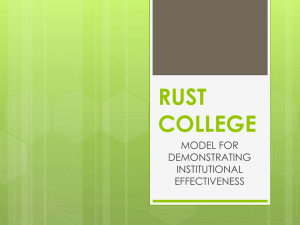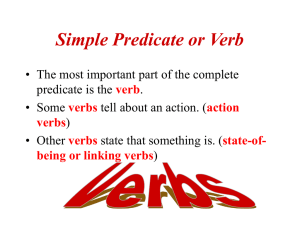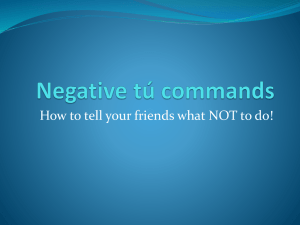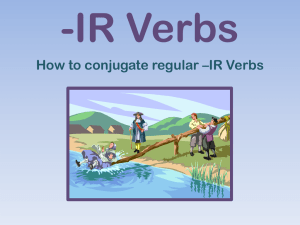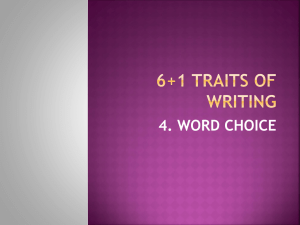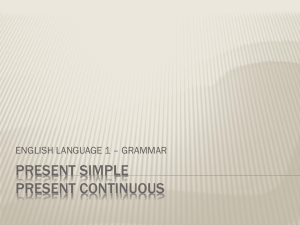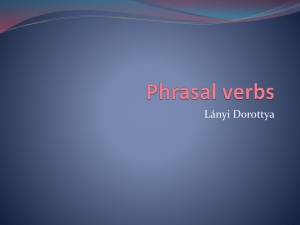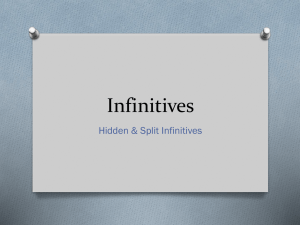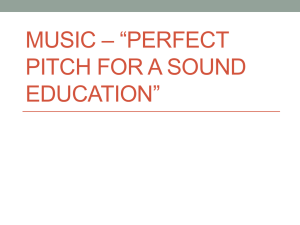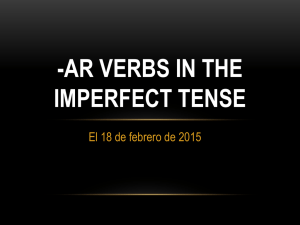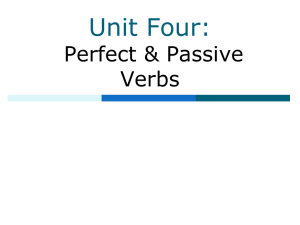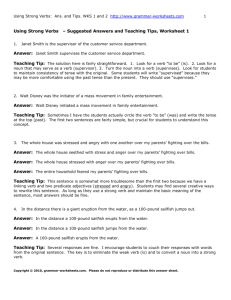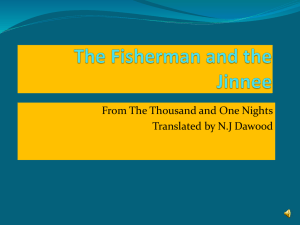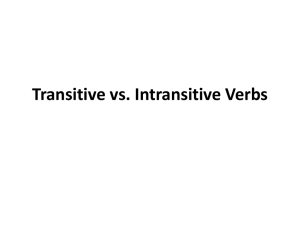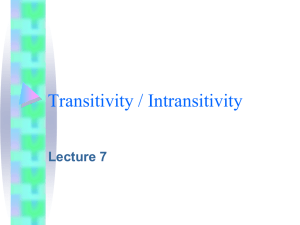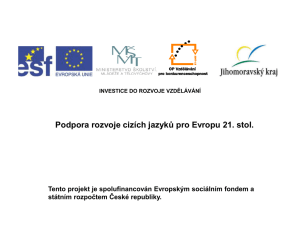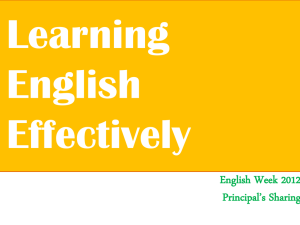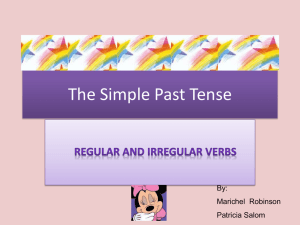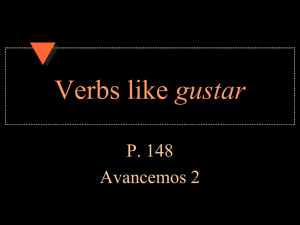LIFESTYLE_LESSON_15
advertisement
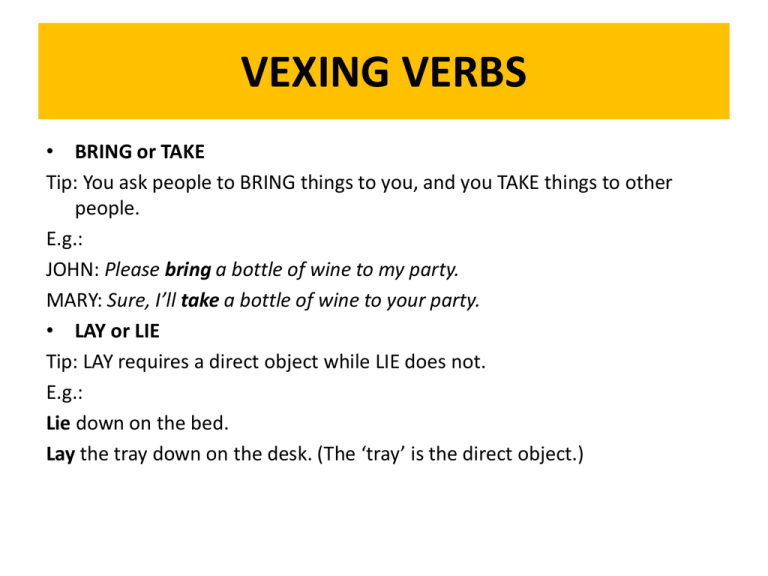
VEXING VERBS • BRING or TAKE Tip: You ask people to BRING things to you, and you TAKE things to other people. E.g.: JOHN: Please bring a bottle of wine to my party. MARY: Sure, I’ll take a bottle of wine to your party. • LAY or LIE Tip: LAY requires a direct object while LIE does not. E.g.: Lie down on the bed. Lay the tray down on the desk. (The ‘tray’ is the direct object.) VEXING VERBS • SAY or TELL We use: tell + somebody. I told Jack about him. We use: say + clause. He said he was not feeling well. We use: tell + clause when we include a pronoun such as us, him, me, etc. He told her he was not feeling well. We use: say + something + to somebody. He said goodbye to me. We use: tell when we are giving facts or information Tell me about your new car. • • • • • It seems It feels It sounds It smells It looks VEXING VERBS • LEAVE or LET Tip: The verb LEAVE means “go away from” or “put in a place.” E.g.: Leave her alone. I never let friends interfere with my studies. • RAISE or RISE Tip: RAISE means “build”, “to make higher”, or “nurture cause to grow”. It’s normally transitive – i.e., the action is done to someone else or something. RISE means “to get up” or “become elevated”. It’s never transitive. E.g.: She was raised by her grandfather. The sun rises and sets each day. VEXING VERBS • WISH + WOULD + bare infinitive This structure is used to express impatience, dissatisfaction, or annoyance with a present action. E.g.: I wish he would stop smoking. • WISH + past simple This structure is used to express that we want a situation in the present (or future) to change, or be different. E.g., I wish I spoke English well. CAUSATIVE VERBS (let, make, have, get, etc.) • LET [let + person + verb] Tip: This constructions means “to allow someone to do something.” Will your mom let you go to my birthday party? I’m not sure if my teacher will let me join the field trip. Dad let me drive his new Mercedes. CAUSATIVE VERBS (let, make, have, get, etc.) • MAKE [make + person + verb] Tip: This constructions means “to force someone to do something.” Who made you wear that ugly shirt? She made her students finish all their projects in one day. My mom made me apologize to my sister. CAUSATIVE VERBS (let, make, have, get, etc.) • HAVE [have + person + verb] Tip: This constructions means “to give someone the responsibility to do something.” The boss had his secretary type the letters. Please have your secretary buy the plane tickets. I had the plumber check the pipes. CAUSATIVE VERBS (let, make, have, get, etc.) • GET [get + person + verb] Tip: This constructions means “to convince to do something” or “to trick someone into doing something.” The new tax law was made to get people to stop smoking. I got my friend to trade her baseball cards with mine. NON-CONTINUOUS VERBS hate * like * love * want * trust * know * understand * remember * believe * think (=believe) * fear * have * own * possess * belong VERBS + INFINITIVE appear * agree * afford * attempt * ask * arrange * claim * choose * care * consent * come * dare * deserve * demand * decide * determine * expect * endeavour * elect * fail * get * guarantee * help * hate * hesitate * hurry * hope * intend * incline * long * learn * mean * manage * need * offer * plan * pretend * prepare * promise * refuse * resolve * say * seem * threaten * wish * want ING VERBS admit * adore * acknowledge * avoid * anticipate * appreciate * contemplate * confess * celebrate * dread * dislike * discuss * detest * describe * enjoy * endure * finish * fancy * involve * imagine * justify * keep * miss * mind * mention * omit * practice * postpone * report * regret * recall * resume * resent * risk * recommend * suggest * tolerate * understand
